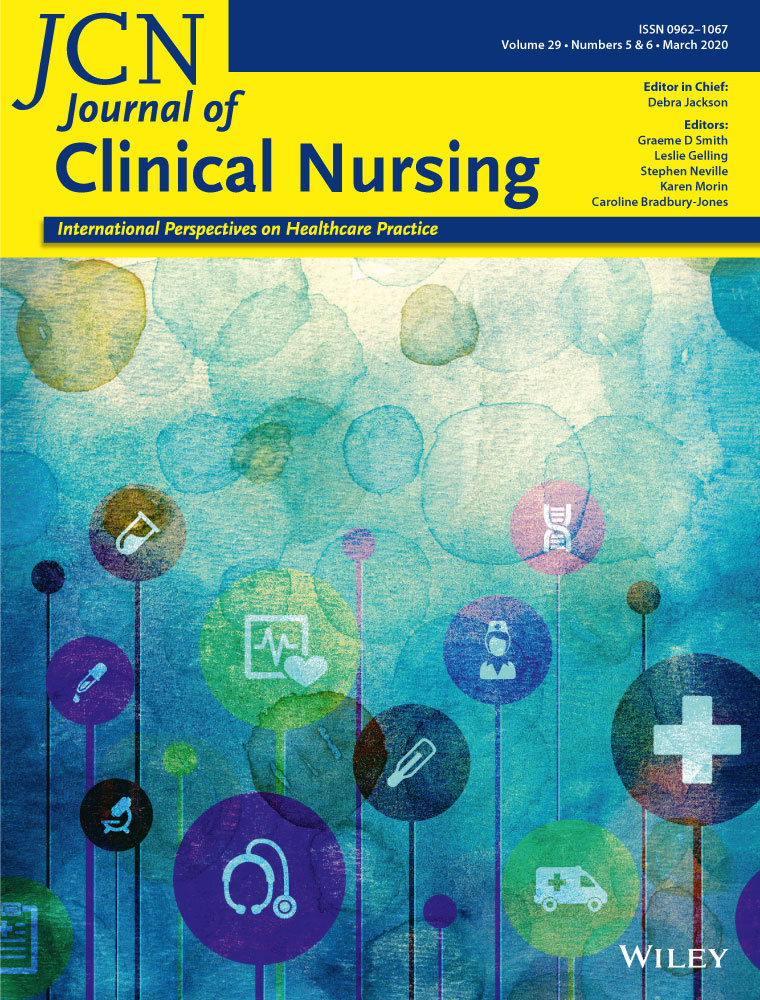Fading confidence: A qualitative exploration of parents’ experiences caring for a febrile child
Funding information
This research was funded by a Networks of Centres of Excellence Knowledge Mobilization grant [agreement #RES0032757] with matching dollars provided by the Women and Children's Health Research Foundation [internal reference number RES0014905] and a CIHR Foundation grant [reference #148411] awarded to Scott and Hartling. Thompson is funded by a graduate studentship from the generous support of the Stollery Children's Hospital Foundation through the Women and Children's Health Research Institute. Dr. Hartling is Canada Research Chair in Knowledge Synthesis and Translation and is Distinguished Researcher, Stollery Children's Hospital Foundation. Dr. Scott is supported by Canada Research Chair in Knowledge Translation and is Distinguished Researcher, Stollery Children's Hospital Foundation. The funding bodies supported the authors’ time commitment for this research without input into the design of the study, collection, analysis and interpretation of data, or writing of the manuscript.
Abstract
Aims and objectives
To explore parents’ experiences with paediatric fever to understand their needs for information and support.
Background
Paediatric fever is a normal part of childhood, and multiple episodes of fever are a common occurrence between infancy and adulthood. Despite this expectation, paediatric fever often sparks fear and anxiety amongst parents. Existing research has primarily focused on measuring parental deficits, so a more in-depth exploration is helpful to understand the complexities of caring for a febrile child.
Design
Qualitative descriptive study.
Methods
Purposive sampling of N = 15 parents from a paediatric emergency department presenting with a febrile child. Semi-structured interviews were conducted in-person or via telephone. Thematic analysis was used to understand the data in the light of our research question. Reporting follows the consolidated criteria for reporting qualitative research checklist.
Results
We found themes of (a) parental confidence through caregiving tasks, (b) emergent feelings of inadequacy, (i) referrals and limitations of community practice, (c) information needs and (d) information sources. Whereas parents were initially confident accessing information, providing care, making decisions and managing symptoms, new signs/symptoms sparked a change in parents’ emotions, coping and behaviour. Parents routinely search for information about paediatric fever and value reliable, accessible resources.
Conclusions
Our findings highlight parents’ strengths assessing fever and effectively managing symptoms. We are encouraged by the potential for these results to inform the development of empowering resources to help parents make child health decisions during paediatric fever.
Relevance to clinical practice
Findings provide an evidence base for researchers, clinicians and policymakers to improve care for paediatric patients and families. Parents want clear, reliable and accessible information about decision points associated with paediatric fever. Resources with an empowerment focus may help parents maintain a sense of control when caring for a febrile child.
CONFLICT OF INTEREST
The authors declare that they have no competing interests.
Open Research
DATA AVAILABILITY STATEMENT
The data that support the findings of this study are available on request from the corresponding author (SS). The data are not publicly available due to ethics restrictions that could compromise the privacy of the research participants.




